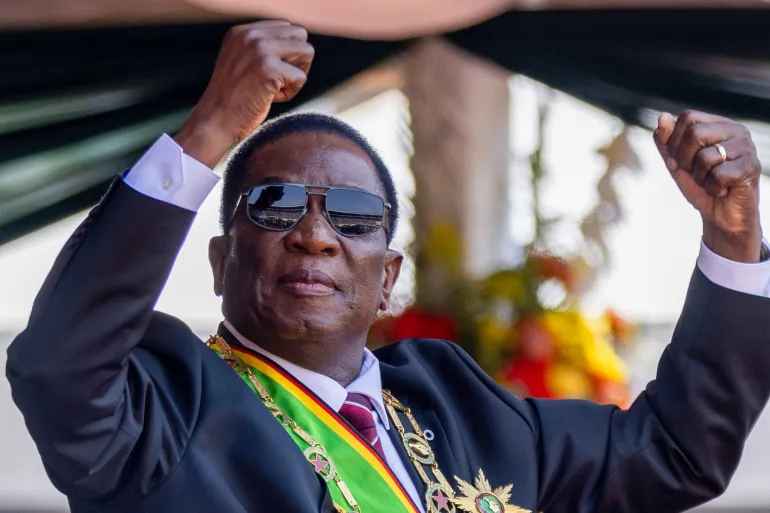In a significant move, the United States has imposed sanctions on Zimbabwe’s President Emmerson Mnangagwa, along with his first lady and several other government officials, citing their alleged involvement in corruption and human rights violations.
The Treasury Department’s Office of Foreign Assets Control targeted three entities and eleven individuals, including Mnangagwa, Vice President Constantino Chiwenga, and retired Brigadier General Walter Tapfumaneyi, among others. The sanctions come amidst allegations of protecting gold and diamond smugglers, facilitating illicit markets for precious minerals, and accepting bribes.
President Joe Biden signed an executive order terminating Zimbabwe’s national emergency and revoking Zimbabwe-specific sanctions. Instead, the administration is leveraging a Trump-era executive order that implements the Global Magnitsky Human Rights Accountability Act to impose the sanctions.
Treasury Deputy Secretary Wally Adeyemo clarified that the sanctions are not aimed at the people of Zimbabwe but specifically target Mnangagwa’s “criminal network” of government officials and businesspersons responsible for corruption and human rights abuses.
Zimbabwe’s government spokesman Nick Mangwana responded to the sanctions, stating that as long as senior leadership and corporate figures remain under sanctions, the entire country feels the impact.
US Secretary of State Antony Blinken emphasized that the sanctions represent a shift towards a stronger and more targeted approach to Zimbabwe. He held key individuals, including government members, responsible for actions such as looting government resources, depriving Zimbabweans of public funds.
Mnangagwa, who began his second term as president last September, faces increased scrutiny over allegations of corruption and rights violations. The sanctions reflect growing international concern over governance and human rights issues in Zimbabwe.
As the US takes a firmer stance on Zimbabwe, the implications of these sanctions on the country’s political landscape and its relationship with the international community remain to be seen.
